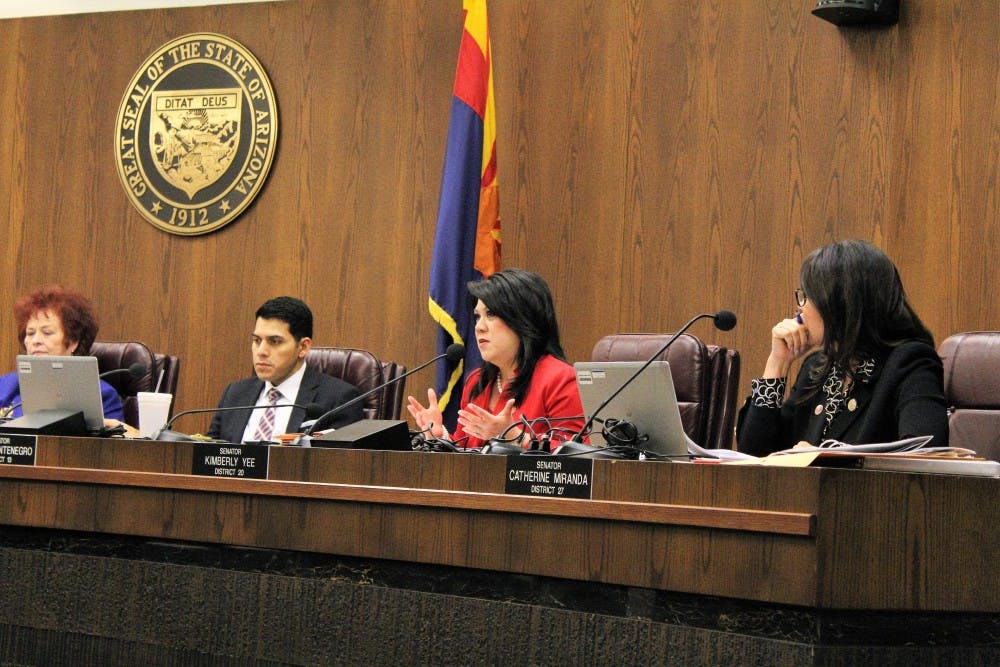A bill that would expand First Amendment protections for student journalists at Arizona’s schools passed the Arizona Senate Education Committee Thursday afternoon.
Senate Bill 1384, introduced by Sen. Kimberly Yee, R-Phoenix, would place limitations on what school administrators can censor from student publications. The bill originally included language including college and university publications as well, but this language has been removed from the current bill.
“I have a very personal history with this bill,” Yee said, detailing her personal accounts of censorship in student media.
In testimony, Yee spoke about her prior efforts to get similar legislation passed, starting almost 25 years ago when she was a student journalist at Greenway High School.
“I was a high school journalist on the Greenway Dispatch,” Yee said. “It was interesting that I’d be sitting in my government class and learning about First Amendment rights and freedom of speech, and then going on to my next class in journalism and seeing I was not able to exercise those rights.”
Yee said the bill was drafted with support from all stakeholders involved, including school officials and student media advisers. However, this bill would not overturn legal precedence decided by the Supreme Court case Hazelwood v. Kuhlmeier, decided in 1988.
In Hazelwood, the Supreme Court held that school administrators overseeing a student publication that uses school resources have grounds to censor and prevent publication of material that is "inconsistent with the shared values of civilized social order."
In the years since Hazelwood, this ruling has allowed schools over the country the right to prior review and censorship of student publications.
Joseph Russomanno, an associate professor at the Walter Cronkite School of Journalism and Mass Communication, teaches a required course for journalism majors on media law.
“I would like to think that over this time period (since Hazelwood) that more and more people, including legislators, and certainly those in high schools, have seen the dangers of Hazelwood,” said Russomanno.
He said some people argue that the precedent set by Hazelwood sends an incorrect message about an important right to high school students.
“One of the thrusts of the arguments against press freedom in school environments is that student journalists aren’t mature enough, intellectually or otherwise, to handle that freedom,” Russomanno said.
These concerns were echoed by state Sen. Steve Smith, R-Maricopa, before the committee vote took place.
Smith said he was worried this bill could allow a student publication to unduly embarrass or cause harm to another student.
“I just want to make sure we are not green-lighting any inappropriate stuff for high school kids,” Smith said.
He said he was concerned that a student could potentially be embarrassed in something like a cartoon, which would not necessarily be libelous or illegal. But Yee said the systems in place at schools would prevent such a situation.
Smith voted "yes" on SB 1384, along with the rest of the committee.
Reach the reporter at politics.statepress@gmail.com or follow @chriswood_311 on Twitter.
Like State Press on Facebook and follow @statepresss on Twitter.




